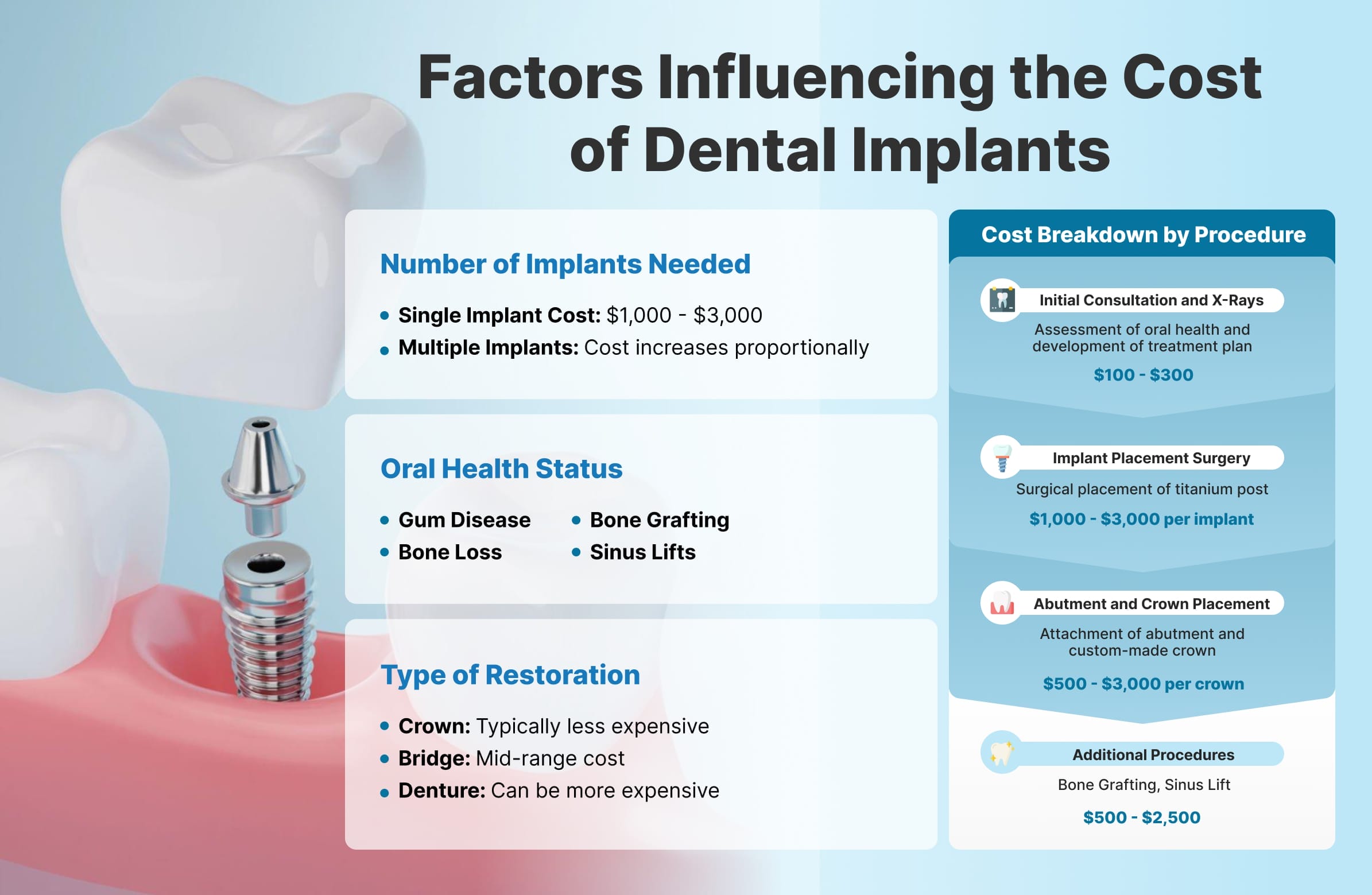Some Ideas on Dental Sense You Need To Know
Table of Contents6 Easy Facts About Dental Sense DescribedSome Ideas on Dental Sense You Need To KnowThe Only Guide to Dental SenseThe Definitive Guide to Dental Sense
are medical tools surgically dental implanted into the jaw to restore an individual's capability to chew or their look. They supply assistance for synthetic (fake) teeth, such as crowns, bridges, or dentures. When a tooth is shed because of injury or condition, an individual can experience complications such as fast bone loss, faulty speech, or changes to eating patterns that result in discomfort.Oral dental implant systems contain a dental implant body and dental implant abutment and might likewise include an abutment fixation screw. Professional teeth whitening. The dental implant body is surgically inserted in the jawbone instead of the tooth's origin. The oral implant abutment is generally affixed to the dental implant body by the joint addiction screw and expands via gums into the mouth to sustain the affixed fabricated teeth
(https://www.find-us-here.com/businesses/Dental-Sense-Miami-Florida-USA/34200016/)Framework of The Dental Implant System selecting oral implants, speak with your dental company regarding the potential benefits and risks, and whether you are a candidate for the treatment. Things to consider: Your overall health is an essential element in determining whether you are a great candidate for oral implants, exactly how long it will require to heal, and the length of time the implant might remain in location.
Smoking cigarettes may affect the recovery process and lower the long-lasting success of the dental implant. The recovery process for the implant body may take several months or longer, throughout which time you commonly have a momentary joint instead of the tooth. the dental implant treatment: Thoroughly adhere to the dental hygiene guidelines provided to you by your dental copyright.
8 Simple Techniques For Dental Sense
Implant failing can lead to the need for one more operation to fix or change the dental implant system. Brings back the capacity to eat Brings back cosmetic look Aids keep the jawbone from reducing because of bone loss Protects the health of the surrounding bone and gums Helps keep adjacent (nearby) teeth stable Boosts lifestyle Damages to bordering natural teeth throughout dental implant positioning Injury to the surrounding tissues throughout surgical treatment, such as sinus opening Injury throughout surgical treatment (for instance, crack of bordering jawbone) Inadequate function, such as seeming like the teeth do not bite with each other generally A feeling that the tooth hangs or twisting in area arising from a joint screw loosening Implant body failing (looseness of the implant body) because of systemic infection, which may be most likely in people with uncontrolled diabetes mellitus due to local infection in bone and gums sustaining the dental implant body due to delayed healing, which may be most likely in patients who smoke Problem cleaning the periodontals around the implant, leading to inadequate dental hygiene Neglected periodontal disease Post-surgical feeling numb due to nerve impingement or damage Always alert health and wellness care providers and imaging technicians that you have dental implants prior to any type of magnetic vibration imaging (MRI) or x-ray procedures.
FDA is not aware of any unfavorable occasions reported for MRI or x-ray treatments with oral implants. Dental implants systems are generally constructed from materials that comply with global consensus criteria of the International Organization for Standardization (ISO) or ASTM International. These standards have information of what makes a risk-free product.

A dental implant is a structure that changes a missing tooth. With screw-like devices, the cosmetic surgeon inserts an implant right into the jawbone, and it serves as an anchor for a fabricated tooth, called a crown. A device called an abutment connects the synthetic tooth to the dental implant. The crown is customized to fit the individual's mouth and match the shade of their teeth.
5 Easy Facts About Dental Sense Explained
Some people are not eligible for dental implant surgical treatment. It is for dental specialists to run on people with: severe illnessuncontrollable metabolic diseasebone or soft cells condition or infectionIf these issues are solved, an individual can have the surgical procedure. In, dental specialists avoid operating individuals with: If individuals with any of the above undergo oral implant surgery, there is a higher threat of the implant failing.

Dental implant surgery is a tailored procedure. It's not the same for everybody. The following provides a basic summary of what you can anticipate your dental expert, oral doctor, periodontist or prosthodontist to do: Place the implant operatively. Provide you time to recover. Affix the blog post and final crown, bridge or denture.
Next off, your doctor will very carefully place the dental implant into your jaw. If your implant is near the front of your mouth, your dental expert will certainly make a momentary tooth for you to use till you heal.
The 4-Minute Rule for Dental Sense
During the recovery stage, your jawbone should fuse to the oral implant. This procedure can take anywhere from 3 to 9 months.
Once your dental implant heals, your dental professional can affix the joint (tiny adapter article) and your final repair (crown, bridge or denture). This usually takes about one hour to finish and may need a 2nd small surgery. You shouldn't really feel any type of pain throughout your oral implant treatment because your provider will use medicine to numb your gums.